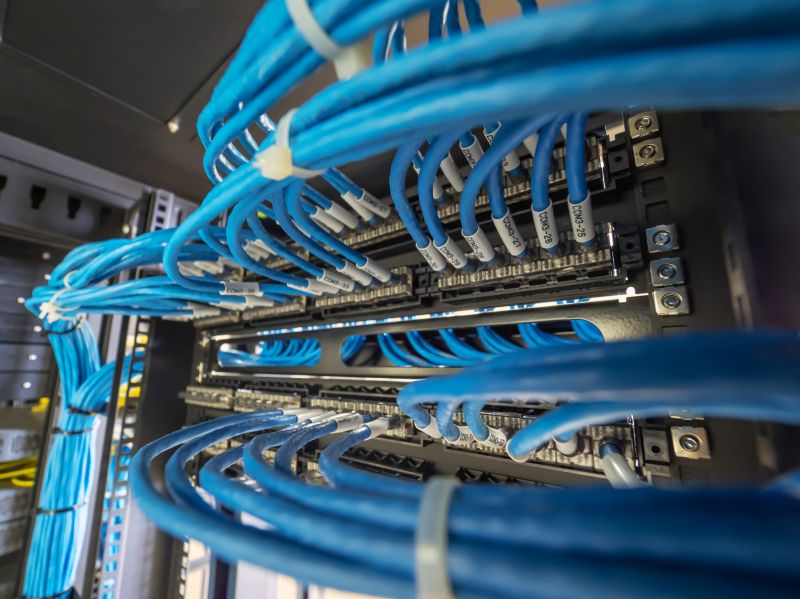Leading Network Cable Installation Tools for Quick and Easy Setup
Equip yourself with top-rated tools designed to improve your installation process and ensure optimal network performance.
 Installing a reliable network infrastructure often involves selecting the right range of products to ensure optimal performance and durability. From cable types to connectors and tools, each component plays a crucial role in establishing a stable and efficient network. Proper planning and understanding of the available products can help both professionals and DIY enthusiasts create a network setup that meets their specific needs.
Installing a reliable network infrastructure often involves selecting the right range of products to ensure optimal performance and durability. From cable types to connectors and tools, each component plays a crucial role in establishing a stable and efficient network. Proper planning and understanding of the available products can help both professionals and DIY enthusiasts create a network setup that meets their specific needs.
Top Overall Option
Structured Cabling System
A structured cabling system offers an organized approach to network installation, integrating cables, connectors, patch panels, and management accessories into a cohesive setup. It is designed to support a variety of devices and network demands, providing flexibility and scalability. While installation may require some planning and effort, a well-implemented structured cabling system can facilitate easier maintenance and upgrades over time.
Types of Products For Network Cable Installations
Ethernet Cables
Various categories including Cat5e, Cat6, and Cat6a cables designed for different bandwidth and distance requirements.
RJ45 Connectors
Standard connectors used to terminate Ethernet cables for reliable network connections.
Crimping Tools
Tools used to attach connectors to cables securely and efficiently.
Cable Testers
Devices that verify the integrity and proper wiring of network cables.
Patch Panels
Organized panels that connect multiple network cables in a structured manner.
Cable Management Clips
Accessories to secure and route cables neatly along walls or within panels.
Cable Sleeves and Ties
Flexible sleeves and ties for bundling cables and reducing clutter.
Wall Plates and Faceplates
Mounting plates with ports for easy and clean cable connections on walls.
Fiber Optic Cables
High-speed cables suitable for long-distance and high-bandwidth applications.
Wireless Adapters
Devices that enable wireless connectivity in a wired network setup.
Network Switches
Devices that connect multiple network segments and manage data traffic.
Router Units
Devices that direct data between different networks and manage internet access.
Wall Mount Racks
Enclosures for organizing networking equipment securely.
PoE Injectors and Switches
Power over Ethernet devices that supply power to network devices through cables.
Popular Choices
Widely used for their balance of performance and affordability, suitable for most home and small office networks.
Essential for terminating cables and creating custom lengths or configurations.
Popular for ensuring cable integrity before deployment or troubleshooting issues.
Commonly used in home labs and small offices for organized wiring.
Affordable accessories for keeping cables tidy and protected.
Increasing wireless coverage in areas where cabling is limited or impractical.
Chosen for their high bandwidth and low signal loss over extended distances.
Popular for organizing networking equipment in small to medium setups.
Commonly used to power network devices like cameras and access points via Ethernet.
Versatile switches that support multiple wired connections with manageable settings.
Easy to install for clean and accessible network connections in various rooms.
Popular for bundling cables and preventing tangles in busy setups.
Available in many lengths to connect devices within racks or desks.
Extend wireless network coverage and improve signal strength.
Common in professional environments for organized equipment deployment.
Facilitate connections between different fiber optic components.
High-quality network cables are fundamental, with options varying in shielding, length, and bandwidth capacity. These cables are designed to transmit data effectively over short and long distances, with some models offering enhanced protection against interference. Connectors, such as RJ45 plugs, are essential for establishing secure and reliable connections between devices and cables. Tools like crimpers, cable testers, and patch panels facilitate installation and troubleshooting, making the process smoother and more efficient.
For those undertaking large-scale installations, structured cabling systems provide organized solutions that support multiple devices and network segments. Cable management accessories, including clips, ties, and sleeves, help maintain a tidy setup, reducing clutter and potential damage. Wireless options and adapters also complement wired networks, providing flexibility where cabling is impractical. Overall, selecting the right combination of these products ensures a network that is both robust and scalable, accommodating future growth and technological advancements.
Key Buying Considerations
- Determine the network speed and bandwidth requirements to select appropriate cable categories.
- Consider the maximum cable length needed to ensure signal quality and avoid degradation.
- Choose connectors and tools compatible with your cable type and installation environment.
- Assess whether a structured cabling system or individual components better suit your project scale.
- Evaluate the shielding and insulation features of cables for interference-prone environments.
- Look for compatibility between switches, routers, and other networking hardware.
- Plan for future expansion by selecting scalable products and modular accessories.
- Prioritize quality and durability to ensure long-term reliability of the installation.
- Consider ease of installation and availability of support or instructional resources.
- Review product certifications and standards to meet industry and safety requirements.
- Account for aesthetic and organizational features like wall plates and cable management accessories.
- Balance cost with performance to optimize your budget without compromising essential features.
- Check for compatibility with existing network infrastructure if upgrading or expanding.
- Determine if wireless solutions are needed to complement wired components for flexibility.
This content may contain affiliate links. We earn commissions to support our work and provide valuable information. Please do your own research to find the products that best meet your specific needs.
